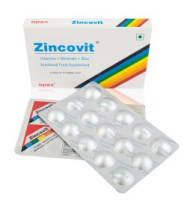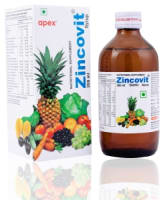NOTICE: unsafe with : Alcohol
USED FOR:
Allergic disorders
COMPOSITION:
Phenylpropanolamine (NA)
Dexchlorpheniramine (NA)
Therapeutic Uses:
respiratory

CAUTION
Taking phenylpropanolamine with alcohol can increase the risk of cardiovascular side effects such as increased heart rate, chest pain, or blood pressure changes.

WEIGH RISKS VS BENEFITS
Tritus Drop may be unsafe to use during pregnancy.Animal studies have shown adverse effects on the foetus, however, there are limited human studies. The benefits from use in pregnant women may be acceptable despite the risk. Please consult your doctor.

No information is available on the use of Tritus Drop during lactation. Please consult your doctor.

Tritus Drop may make you feel dizzy, sleepy, tired, or decrease alertness. If this happens, do not drive.

There is limited information available on the use of Tritus Drop in patients with kidney disease. Please consult your doctor.

There is limited information available on the use of Tritus Drop in patients with liver disease. Please consult your doctor.
Uses of Phenylpropanolamine
Phenylpropanolamine is used in the treatment of allergic disorders.
How to use Phenylpropanolamine
Take this medicine in the dose and duration as advised by your doctor. Check the label for directions before use. Measure it with a marked dropper and take it as directed. Tritus Drop may be taken with or without food, but it is better to take it at a fixed time.Avoid Tritus Drop with caffeine and chocolate as well as food containing caffeine and chocolate such as tea leaves, cocoa beans.
How Tritus Drop works
Phenylpropanolamine belongs to a class of medications called nasal decongestants. It stimulates receptors on blood vessels in the nose and sinuses leading to its constriction and reduction in blood flow thereby relieving congestion..
Common Systemic hypertension (high blood pressure), Nausea, Insomnia (difficulty in sleeping), Palpitations.
Expert advice for Phenylpropanolamine
Do not continue phenylpropanolamine for more than 7 days if your condition does not improve or if you have high fever.
Tell your doctor if you have high blood pressure, heart problems, liver or kidney disease, diabetes, prostate enlargement or visual problems due to increased pressure in the eyes (glaucoma).
Seek immediate medical attention and discontinue medication if you experience difficulty in breathing, sudden swelling or skin reactions, fits, rapid heartbeat or hallucinations.
Use with caution if you are a woman or an elderly patient. Woman may be at a higher risk of haemorrhagic stroke (bleeding in the brain).
Avoid driving or operating machinery if you feel dizzy or drowsy after taking phenylpropanolamine.
Tell your doctor if you are or planning to become pregnant or are breastfeeding.
Do not take if allergic to phenylpropanolamine or any of its ingredients.
Q. Is phenylpropanolamine the same as phenylephrine?
Phenylpropanolamine and phenylephrine are different drugs belonging to the same class of medications (nasal decongestants). Both are used to relieve blocked nose or sinuses caused by common cold and seasonal nasal allergies (hay fever)
Q. Does Phenylpropanolamine cause stroke?
Phenylpropanolamine has shown to increase the risk of hemorrhagic stroke (bleeding in the brain). Women are at a higher risk.
Q. Is Phenylpropanolamine a controlled substance?
Phenylpropanolamine is a controlled substance since it can be used for manufacturing of illegal drugs
Q. Is Phenylpropanolamine still on the market?
Phenylpropanolamine is banned in India due to increased risk of haemorrhagic stroke (bleeding in the brain) and is no longer marketed in India
Uses of Dexchlorpheniramine
Dexchlorpheniramine is used in the treatment of allergic disorders.
How to use Dexchlorpheniramine
Take this medicine in the dose and duration as advised by your doctor. Check the label for directions before use. Measure it with a marked dropper and take it as directed. Tritus Drop may be taken with or without food, but it is better to take it at a fixed time.Avoid Tritus Drop with caffeine and chocolate as well as food containing caffeine and chocolate such as tea leaves, cocoa beans.
How Tritus Drop works
Dexchlorpheniramine is an antihistaminic medication. It blocks the action of certain chemical messengers that are responsible for inflammation, congestion, itching, and other allergic reactions.
Common Sleepiness.
Expert advice for Dexchlorpheniramine
Avoid driving or operating dangerous machinery as it may decrease alertness. Avoid consuming alcohol when taking the Dexchlorpheniramine, as it may cause excessive sleepiness or drowsiness.
Q. Does dexchlorpheniramine or dexchlorpheniramine maleate cause increase in blood pressure/ drowsy/non drowsy/sedating/get you high/keep you awake/sleepiness/make you tired/weight gain?
Dexchlorpheniramine causing these side effects is common or rare. Always consult your doctor if you experience any of these side effects
Q. Is dexchlorpheniramine like Benadryl?
No, dexchlorpheniramine is different from Benadryl
Q. Is dexchlorpheniramine prescription?
Yes, it is available with doctor's prescription only
Q. Can I take dexchlorpheniramine with Panadol/cetirizine/Zyrtec/Allegra/ warfarin/diphenhydramine/ibuprofen/Claritin/guaifenesin/Benadryl?
Yes, but taking other medicines may alter the effects of dexchlorpheniramine. Always consult your doctor for the change of dose regimen or an alternative drug of choice that may strictly be required.


 Tritus Drop
Tritus Drop  Bookmark
Bookmark





















